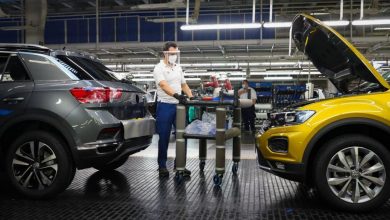
COVID-19: EU supports automotive industry
The EU has taken a set of measures to mitigate the worst effects of the COVID-19 shutdown. ACEA, Europe’s association of vehicle manufacturers, has prepared an overview of the main measures.
Europe’s automotive industry has come to a complete standstill. Factories are shut, no vehicles are sold. The economic impact of a sustained shutdown is likely to be severe.
Liquidity problems
Automotive is a highly capital-intensive industry. Without revenue, OEMs and their suppliers will soon face liquidity problems. However, under current circumstances, banks nor investors will be eager to provide the necessary financing.
That is why the European Central Bank (ECB), the European Investment Bank (EIB) and the European Commission (EC) have taken steps to help both the companies in the automotive industry and their employees.
PEPP
The ECB has adopted a monetary policy package, and a €750-billion Pandemic Emergency Purchase Programme (PEPP). It has also added €120 billion in net asset purchases, and has relaxed its requirements for banks to hold specific levels of capital.
The EIB will mobilise €40 billion of financing to alleviate liquidity and working capital constraints. And the EC will relax existing rules on state aid to give EU member states more room to support their economies.
Escape clause
Among other measures, the temporary framework issued on 20 March by the EC will enable member states to offer direct grants, tax advantages and advance payments of up to €800,000 to companies with urgent liquidity needs.
The EC has also proposed to activate the ‘escape clause’ in the Stability and Growth Pact, which will allow member states to take steps to deal with the COVID-19 crisis outside of the budgetary constraints which the EU normally imposes.
Font: Fleet Europe





